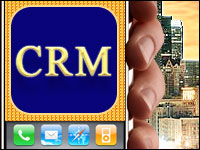
The case for SMS marketing is easy to make. It’s cheap and it’s easy. It can be far-reaching, given how many people carry cellphones now — and did I mention that it’s cheap?
Still, there is a downside to SMS marketing. For starters, it can be very annoying to consumers, especially if the text isn’t something that sparks their interest. Even those who have indicated they’re receptive to text messages from a brand can quickly sour on the idea if those messages come too often or don’t provide new information, Dan Roche, VP of marketing for TalkPoint, told CRM Buyer.
“Texting provides a double-edged sword for marketers,” he said. “On the one hand, texts provide an incredible opportunity to proactively jump in front of your targeted and subscribed audience. You are nearly guaranteed a captive audience for a high percentage of the people you contact.”
These advantages make it very easy for marketers to ignore the risk that is part and parcel of an SMS campaign, Roche continued. “The very characteristics that are advantages of texting are also the inherent dangers. You are more or less forcing your brand onto people, and when you do that, it becomes very easy to be the unwelcome guest.”
Always Let Them Opt In
Much of this is mitigated, of course, by being vigilant with the opt-in process.
It pays off in the form of minimal end-user aggravation, said Zocalo Group President and CEO Paul M. Rand, who uses SMS marketing on behalf of his clients and is careful to incorporate the opt-in at some point in the process.
“We have two programs currently running whereby consumers can opt in to a brand advocacy program entirely through their mobile device,” he told CRM Buyer.
The entire program, in fact, relies on text messaging as the key initial driver for sign-up.
“We have another program where consumers, as they are finishing a cosmetic procedure, can text a specific code in order to later review the product again, having the text messaging as the key driver of this program,” said Rand.
Emphasize the Value Add
Another way to minimize end-user annoyance is to offer something of use — and not just bombard customers with brand messaging.
For instance, Best Western was recently recognized for its mobile ad campaign — a mix of geofencing, location-based advertising, and mobile technology that allows people to book rooms from their devices.
While SMS is not so advanced that consumers can perform complex transactions directly from the text, ads can take people to landing pages for such tasks.
That’s just one idea. In general, if SMS marketers think in terms of value to the end-user, they probably won’t go wrong, Tom Cotney, CEO of mBlox, told CRM Buyer.
“In the past year, I think you’ll find that a common characteristic of all successful SMS campaigns was value; both for the business and individual,” he said. “Even if the content of the message was not acted on, the individual appreciated receiving it — and that builds commitment and loyalty.”
A successful messaging campaign is much more than offering shoppers a discount coupon as they wander by a store, Cotney continued — it’s about marketing to a person, instead of focusing on the technology or the device.
Clearly you can catch a person’s attention with a coupon, but how can you think about your customer relationships more strategically? One possibility could be to provide a status message on a customer’s wish list items in stock, suggested Cotney. Another could be sending a message asking a customer’s opinion of the last consumable item purchased from the store via a satisfaction survey.
“The point is that as marketers, we need to think beyond the immediate revenue opportunity,” Cotney said, “and build a loyalty base for long-term sales.”
























































